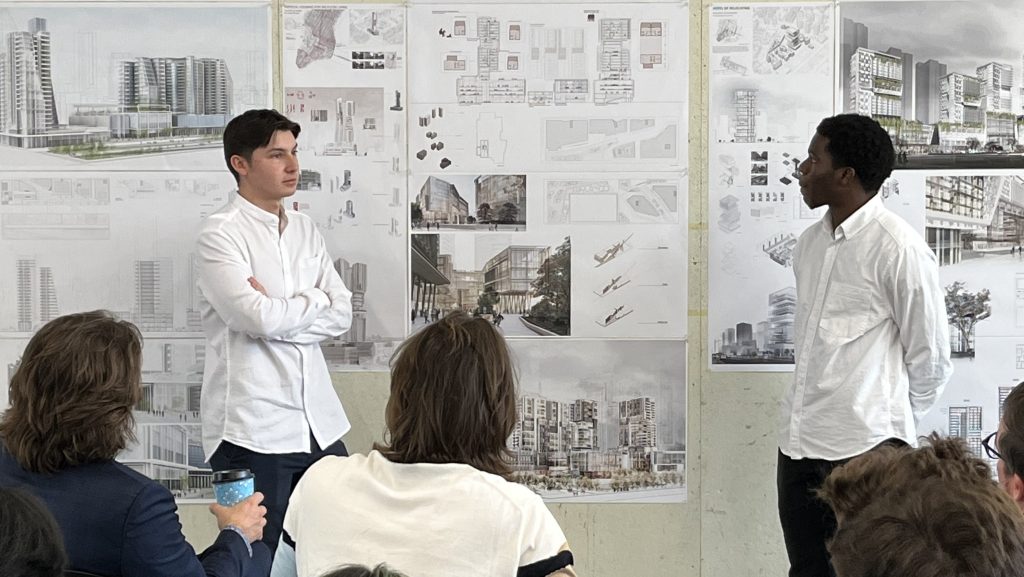
Program Overview
The University of Florida’s Bachelor of Design (BDes) is a pre-professional degree in Architecture that qualifies students for entry into any NAAB-accredited two-year Master of Architecture degree program in the US and Canada. This is the typical foundational degree for those seeking the professional Master of Architecture degree and advancing to achieve professional licensure as an architect. Graduates from the UF School of Architecture are highly competitive nationally and may typically choose from a number of prestigious graduate programs across the US in addition to attaining scholarships and teaching assistantships in support of their graduate studies.
Bachelor of Design students follow a four-year curricular track that combines general education and architecture core curriculum each of their eight semesters. Design studio lies at the heart of the Bachelor of Design program. Both the design process and its architectural products are the result of a complex interplay of various phenomena. The form, function, and aesthetic of architecture are shaped by many things: by human behavior, perception and activity; by the limitations and potential of materiality, structure and construction; by the interaction of exterior with interior, and the built object with its natural setting; and by historical precedents and cultural values that invest architecture with meaning and relevance. In the studio sequence, students will progressively and thoroughly explore these various formal, conceptual, and technical considerations, exploring these interrelationships toward the creation and definition of architectural space.
In support of the synthetic work required in design studio, courses in history, theory, structural tectonics, building technology, and construction materials and methods will provide the theoretical, conceptual, and practical knowledge that students will need to advance their studio projects. Design studio and support courses are intended to be complimentary reinforcing lessons from each area of expertise and contributing to holistic design proposals. This holistic understanding is crucial in developing the necessary skills to author architecture that meets and surpasses the competent, and functional while striving to be meaningful and inspiring.